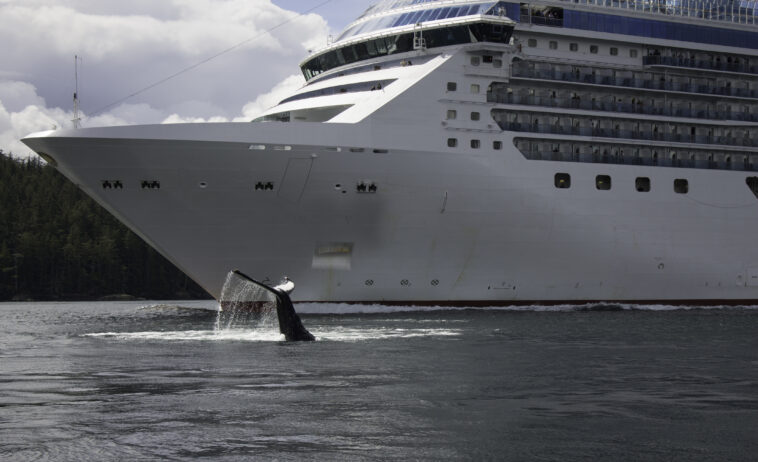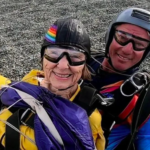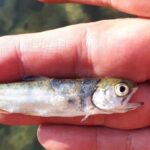Increasing vessel collisions with humpback whales on BC’s North and Central Coast are leaving many experts concerned for their safety and survival.
“We are so fortunate to have a second chance with this species at risk. It is the responsibility of anyone using watercraft to know the laws and best practices to avoid collision. This is necessary for both the sake of boater and whale safety.”
Jackie Hildering, MERS Education and Communications Director and humpback researcher
Ocean Wise and the Marine Education Research Society (MERS) have reported four large vessel strikes of humpback whales between July and August, with another seven smaller boat collisions during the same period. These vessels include BC Ferries ships, a cruise ship, and a catamaran ferry.
Humpback Expert Raises Alarm
Jackie Hildering, MERS Education and Communications Director and humpback researcher, who our readers may know as the ‘Marine Detective,’ spoke with West Coast Now in an interview about the increasingly alarming number of collisions.
“We are so fortunate to have a second chance with this species at risk. It is the responsibility of anyone using watercraft to know the laws and best practices to avoid collision. This is necessary for both the sake of boater and whale safety,” she said.
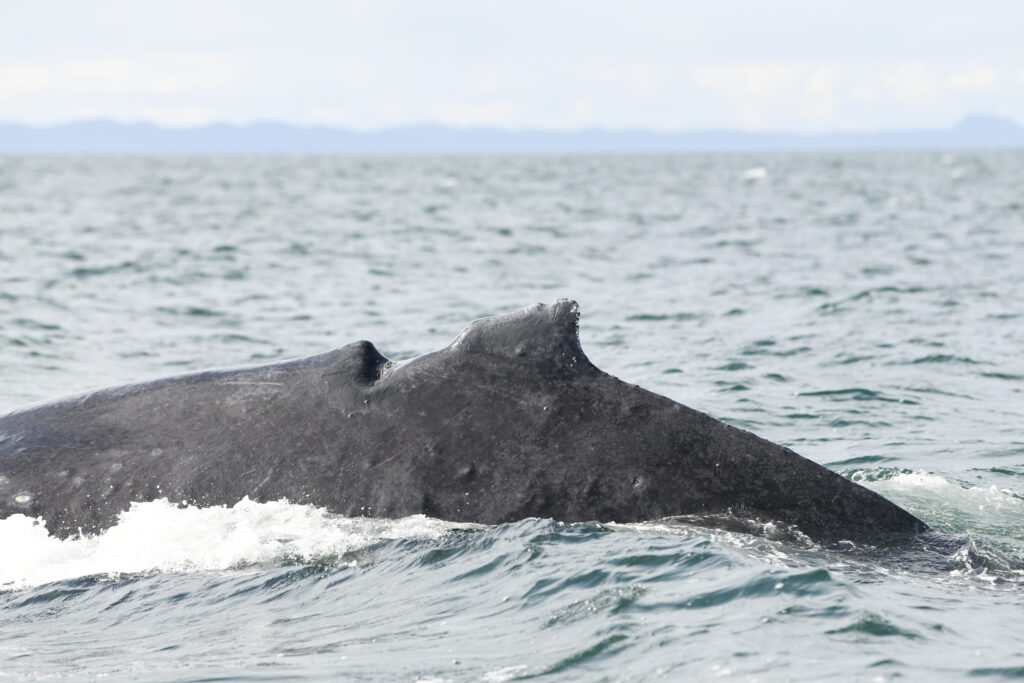
Last month, MERS shared an alarming video of a speeding pleasure craft striking a humpback near Campbell River, helping to raise awareness of these increasingly frequent events. They are currently monitoring the whale, named Harlequin, involved in the incident.
Hildering emphasized that much can be done to reduce these accidents, including educating boaters, marking slow-down zones, and fostering a culture of openness to report accidents.
Humpbacks At Risk
Last year, several humpbacks were found dead in Haida Gwaii and Prince Rupert, with many suspected to have died from blunt force trauma caused by boat collisions. West Coast Now previously covered the remarkable story of Moon the whale, who swam 4800 kilometres from BC to Hawaii without the use of her tail after being injured by a boat. Moon has not been spotted since, said Hildering.
She encourages the public to inform themselves about humpback behaviour.
“They can suddenly surface after long dives or be resting or nursing just below the surface.”
Jackie Hildering, MERS Education and Communications Director and humpback researcher
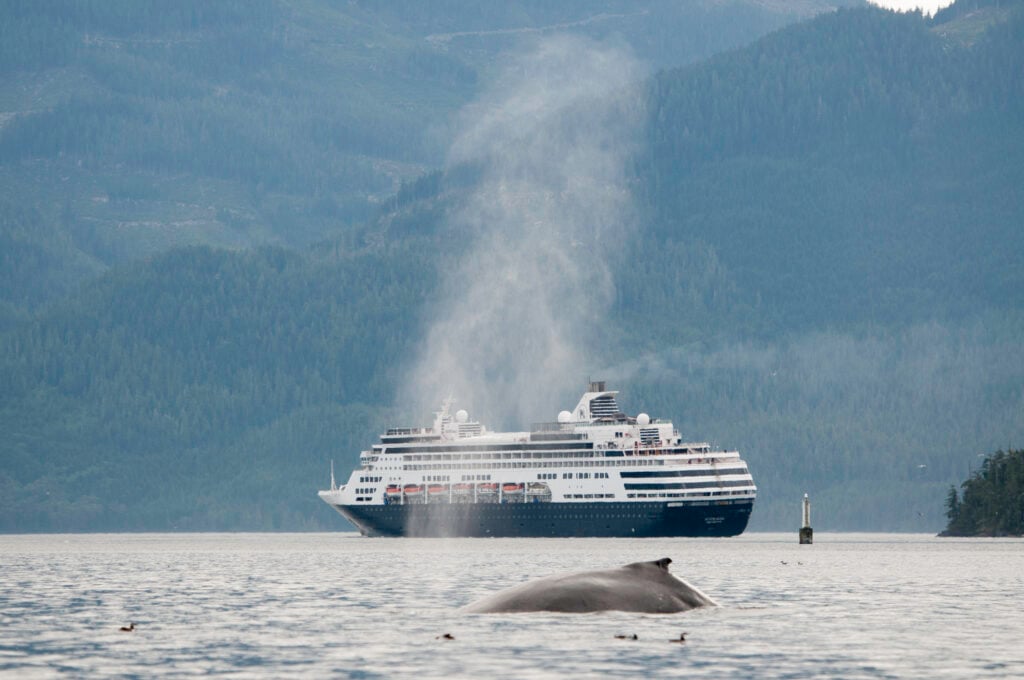
Photo: Jackie Hildering, Marine Education and Research Society.
“Humpbacks and other baleen whales are in these cold, rich waters to get fat fast. They must build up the reserves to be able to undertake the migration to warmwater breeding grounds and sustain themselves there.” She explained that baleen whales do not have biosonar or ‘echolocation’ like orca whales and are often oblivious of boats, especially when feeding or resting. “They can suddenly surface after long dives or be resting or nursing just below the surface,” Hildering said.
Humpbacks are a protected marine species at risk from other harmful human impacts, like entanglement from nets, prey reduction from climate change, and noise pollution.
Report Any Collisions
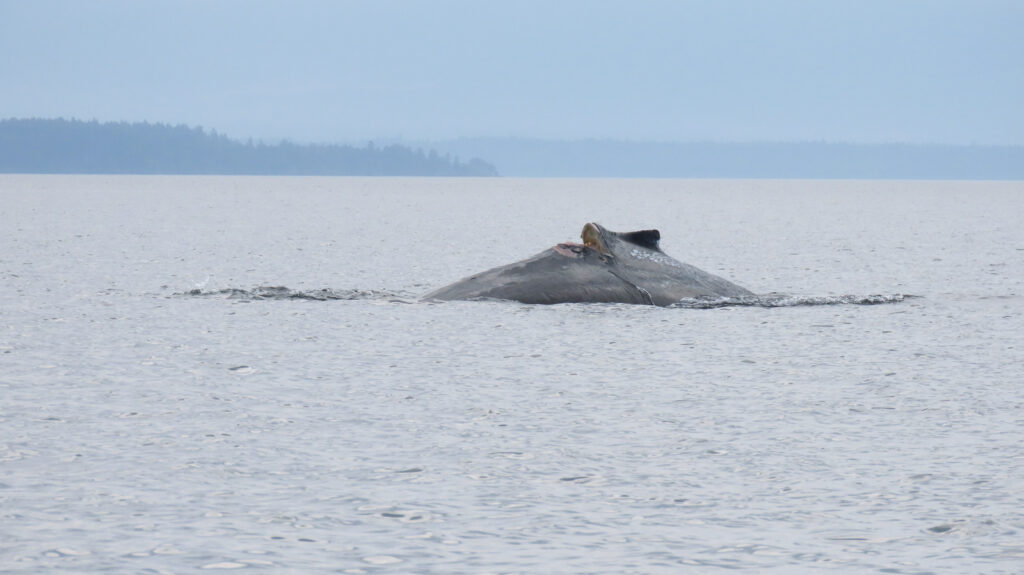
Many advocates are concerned that boaters are hitting whales but not reporting possible collisions to authorities. Under federal law, collision and entanglement of marine mammals must be reported to Fisheries and Oceans Canada.
To report a collision, entanglement, or violations of marine mammal laws, contact the DFO Incident Reporting Line at 1-800-465-4336, or [email protected].
For Canadian mariners, resources are available from the Marine Education and Research Society at www.seeablowgoslow.org.


